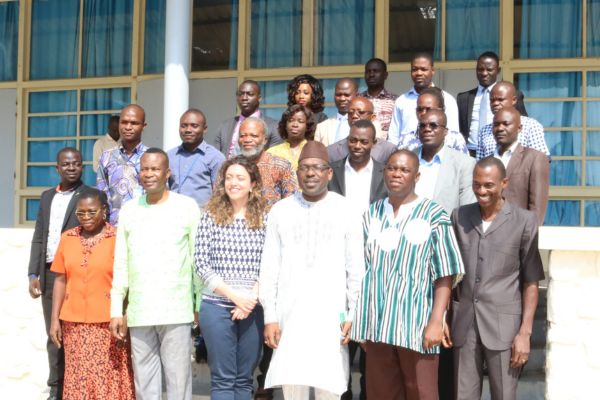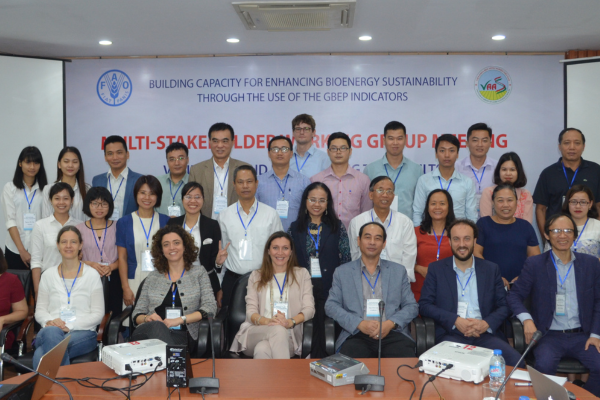Projects
Active projects

Bioethanol as a clean cooking fuel in Africa and Asia
Traditional use of biomass for cooking can have harmful effects on people’s health and wellbeing, and the environment, leading to increased emissions of greenhouse gases and other air pollutants, poor indoor air quality and deforestation. Ethanol cookstoves have recently emerged as a valuable and widely accepted bioenergy option for clean cooking.
Ethanol is a plant-based alternative that could be produced from crop residues or dedicated crops in marginalized land, without affecting food production. Ethanol cookstoves have several benefits, such as improved indoor air quality and reduced emissions, but their widespread adoption in developing countries faces challenges: limited infrastructure, high costs, and limited awareness about the need for high quality and safety standards for both ethanol cookstoves and fuel.

Biofuels production at low ILUC risk for European sustainable bioeconomy (BIKE)
Indirect Land Use Change (ILUC) refers to the environmental impact of repurposing a land for bioenergy production.
Biofuels production at low ILUC risk for European sustainable bioeconomy (BIKE), an Horizon 2020 project, focused on gathering and disseminating information on the market potential of low-ILUC risk value chains for biomass, biofuels and bioliquids in Europe.
Past projects

Rapid sustainability assessment of soybean biodiesel in Paraguay
In Paraguay, soybean, along with corn, is currently one of the most widely used alternatives for the production of biodiesel. A rapid assessment of the soybean biodiesel value chain in Paraguay was undertaken over a period of 4 months in 2021 under the leadership of the Ministry of Agriculture and Livestock of Paraguay and in collaboration with FAO Paraguay and CEAMSO (Centro de Estudio Ambientales y Sociales, Paraguay), to provide initial feedback on critical areas for further analysis and policy needs.

International dialogues on forest landscape restoration and wood energy
FAO, in collaboration with IEA Bioenergy and with the generous funding of GIZ, has organized and guided a number of international and national dialogues on forest landscape restoration and wood energy.

Capacity building on GBEP Sustainability Indicators for bioenergy in the ECOWAS countries: Togo and Ghana
FAO implemented a four-month project in Togo and Ghana in cooperation with the ECOWAS Centre for Renewable Energy and Energy Efficiency (ECREEE), which contributed to strengthen the capacity of the beneficiary countries to assess bioenergy sustainability via the GBEP sustainability indicators.
The project contributed to discussion on sustainability indicators for Forest Landscape Restoration (FLR) in the context of the AFR100 initiative in Sub Sahara African countries (SSA).

BIOPLAT-EU
BIOPLAT-EU, Promoting sustainable use of underutilized lands for bioenergy production through a web-based platform for Europe, aimed at promoting sustainable use of underutilized lands for bioenergy production through a web-based platform for Europe that serves as decision support tool.

Building capacity in Paraguay and Viet Nam
The GBEP indicators were implemented in Paraguay and Viet Nam under the project “Building Capacity for enhancing bioenergy sustainability through the use of GBEP indicators”.

FORBIO (Fostering Sustainable Production of Biofuels on Underutilized Lands in Europe)
FORBIO (Fostering Sustainable Production of Biofuels on Underutilized Lands in Europe) assessed the feasibility of using underutilized lands in Italy, Germany and Ukraine for biomass production without interfering with the production of food or feed, or with land currently used for recreational and/or conservational purposes. Romania, Poland, Ireland, UK and Hungary are outreach countries.

Pilot testing of GBEP indicators for sustainable bioenergy in Indonesia and Colombia
The 24 GBEP Sustainability Indicators for Bionergy, designed to measure and monitor the sustainability of bioenergy pathaways, were first tested in Indonesia and Colombia to help decision makers in the countries and improve the tool for future implementations.
